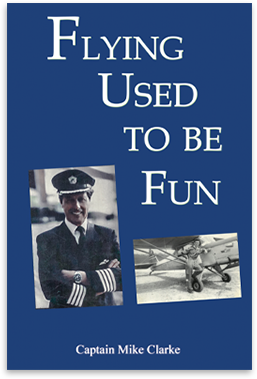
REPETITIVE AIRLINE FAILURES
I worked on the British Airline Pilots Association
Executive Council for twenty years and in my career time witnessed the total
collapse of some 16 Airlines. The ones named will be known to many readers of
this book as millions of passengers will almost certainly have travelled on
holidays or to work using them. It may seem tedious to name them but it makes
the point that hundreds of the staff involved seldom found it easy to obtain a
second job. The companies involved were Orion, Pegasus, Skyways, Hunting Clan,
Derby Airlines, Eagle, Court Line, Go, Laker, British Airtours, British
Caledonian, Independent, Blue Air, Monarch, Dan Air and Flybe.
The failures were nearly always caused by financial
problems and sometimes by poor management. In nearly every case the pilots were
usually amongst the first to recognise the early signs of the disaster about to
overwhelm them. In many cases offers were put forward to reduce benefits and
reduce salaries. Understandable as that was, it sadly hardly ever succeeded.
There were so many reasons that could not be avoided and extremely volatile
fuel prices, decreasing load factors, rather unstable route structures,
increasing costs of spare parts, all played their part in their demise. In a
few cases companies were acquired by the giant in the camp called British
Airways. The purchase price just to rub the point home was usually a pound.
Many careers crumbled within the pilot community and
some jobs, especially fully qualified engineers and a reasonable percentage of
cabin crew, did survive the upheaval. In some cases pilots who had jumped ship
early managed to relocate to an alternate airline still operating successfully.
The even sadder aspect was when this move only delayed being made a redundant a
second time when that company also failed. That is desperate, as another two or
maybe three years had taken them to an age when they were no longer a good
proposition to be expensively retrained yet again.
ONE thing does stand out with this pattern of failure.
Many of the top senior management, and especially the Chairman as it used be in
those days, successfully made it away from the failed ship as millionaires.
Often the pensions of the staff had already been used or depleted to try and
shore up the wounded ship they left. This was happening to many ex-employees
who had been with the company for fifteen or twenty years. It’s not always
possible to recover from that problem!!
This must not be seen as an unusual problem that only
occurs in the U.K. Many very famous carriers in the U.S.A. are no longer in
business. Perhaps the most well-known will be Pan AM and TWA. who basically
were the most famous international carriers for years. Europe also saw
companies like U.T.A. and Air Inter in France and Swiss Air disappear.
Continuous financial success in aviation is really hard and even harder to
guarantee. It’s also a simple truth that most aircrew need thirty plus years of
continuous employment to ensure their pension. A larger number sadly fail in
that objective.
Post Views : 314